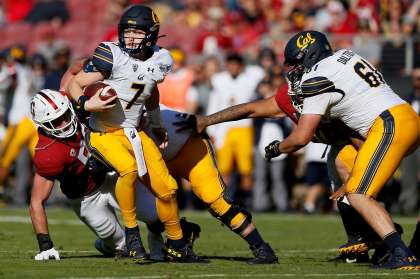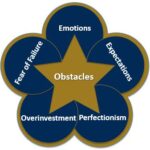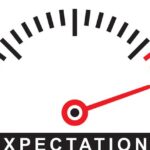In my previous article, I shared with you My 5 Biggest Pet Peeves on Game Day. In that article, I shared what you shouldn’t do on game day. This article is about what you should do to perform your best and achieve your goals on game day.
A fundamental question you need to ask is: “What do I need to do to be totally prepared to perform my best on game day?” If you ask the top-ten men and women in any sport, you will probably get 20 different answers. But, having asked this question of many world-class athletes, I have found five themes that underlie their responses.
Must-do #1: Control Or Not To Control
The life of a athlete can be stressful. There are many things that you can worry about and that can make you depressed, angry, frustrated, and distracted, all of which will hurt your sports efforts. Unfortunately, many athletes worry about the wrong things. The big problem is that many athletes get stressed out about things over which they have absolutely no control. In your athletic life, there are some things you should think about and others you shouldn’t. Things that you should pay attention to are those things over which you have control. These include your physical condition, effort, attitude, thoughts, emotions, behavior, equipment, and preparation. All of these are within your control, so by thinking about them, you can ensure that they are all working for you rather than against you.
At the same time, things in your athletic life that you have no control over, yet you still may think about, include competitors, coaches, officials, parents, weather, field/course, court conditions. If you think about these, you’re creating stress, wasting energy, and preventing yourself from focusing on aspects of your sport that will actually help you perform well.
The next time you find that you are under stress, ask yourself one question: “Is the thing that I am worried about under my control?” If it’s not, let it go and focus on things you can control. If it is within your control, instead of worrying about, do something about it!
Must-do #2: Expect The Unexpected
A major source of stress for athletes is the unexpected things that can come up on game day. The natural reaction to unexpected events is to, well, freak out. You worry, lose confidence, become tense, and get distracted. In that mental and physical state, you have little chance of performing your best.
During the course of a game day, all kinds of things can wrong. On the way to games, airlines can lose equipment and traffic can cause you to arrive late. At the games, equipment can get broken, delays can occur, the list goes on. If you’re not prepared, you’re going to stress out and probably perform poorly.
There are two ways to deal with the unexpected. First, expect the unexpected. This can be accomplished easily. Take a sheet of paper and on the left side of the page, make a list of all the things that can go wrong at a game. Think travel, weather, gear, and game schedule, for starters. Then, on the right side, list solutions to these events. For example, if your equipment is lost, athletes should know someone beforehand whom they can borrow equipment from. Using this strategy, you prevent yourself from freaking out by preventing the unexpected event from being, well, unexpected.
Of course, you can’t anticipate everything (S#*& happens in sports!), so the key then becomes how you react to that unexpected thing (e.g., you get stuck in traffic on the way to the game). You have two choices here. Either experience the aforementioned freak out, which I’m sure you would agree doesn’t do you any good. Or stay calm and look for a solution to the unexpected event. I can assure you that you will feel and perform a whole better if you can keep your cool.
Must-do #3: Trust Your Ability On Game Day
A disagreement I have gotten into with coaches involves whether it is good for athletes to think about technique right before and during a game. They argue that if they don’t think about technique they won’t perform well. But it’s my belief that if you have to think about technique on game day, you haven’t fully ingrained it and one of two things will happen. Either you will not be able to use the technique in a game or you will be so focused on the technique that you forget to just perform your best. Yes, for some athletes, particularly young ones, a specific technique may allow them to perform well. But, in general, being too focused on technique can hurt overall performance.
There is a time and a place to think about technique. That time is during practice. It is here that you analyze your sport and focus on a particular part of your sport in order to develop it. With repetition in practice, the new technique becomes automatic and it will then help you to perform better in games.
But when game day arrives, you shouldn’t question, doubt, analyze, or think about technique. If you do not have a technique down by the time you enter the field of play, you probably won’t be able to use it effectively in the game. Whatever capabilities you bring to the game, trust yourself, and do the best you can with what you have on that day.
Must-do #4: Pre-game Preparation
The most critical period before your game is the time you spend getting ready to compete. What you do there will often dictate the success of your competitive performance. There are three things that must be done to ensure that you perform your best. First, you must prepare your equipment. The last thing you want to worry about before you compete is your equipment, so you want to get it ready first.
Second, you must get physically ready. This involves doing a physical and sport warm-up that primes your mind and body for the upcoming competition.
Finally, you must get mentally prepared. This phase involves putting on your “game face,” that is, narrowing your focus onto the game, using mental imagery to rehearse key parts of your upcoming effort, thinking positively, and actively moving toward your ideal intensity. This preparation will lead to a level of readiness in which, as you enter the field of play, you are totally prepared to perform your best and you only have one thing on your mind: perform the best you can!
Must-do #5: Commit Yourself To Your Performance
Before every game, you have a choice to make. Should you “bring it” and risk a mistake? Or should you perform safely and hope that’s enough? Well, as we all know, cautious sports performances are always a recipe for disappointment and regret. If you go easy, at best, you will be mediocre. At worst, you will perform really poorly. One of the most important things you must do when you are about to “enter the fray” is to be totally committed to competing as committedly as you can, in other words, choose to go “full send,” while accepting that it might not be enough.
To perform well, you have to be 100% committed to performing the very best you can. Unfortunately, as you develop as a athlete, you will often come across competitive situations and conditions that you think are over your head. You may be uncertain about going all out. This uncertainty creates doubts and anxiety. If you try to perform with this mindset, you are going to perform tentatively and give up at the first sign of trouble.
So before your game (in fact, training runs too), make sure that you are focused on sport to as aggressively as possible. Make sure you are totally committed to doing it all the way. If you aren’t totally committed, get refocused and committed, then GO FOR IT! By being committed, you will perform better, have a better chance of getting the results you want, and have a whole lot more fun.
Must-do Bonus Tip #6: Avoid One Emotion and One Question
You only have one shot in a game. Have you ever played it safe in a game, saw how poorly you performed, and kicked yourself for not having gone for it more? It’s a terrible feeling! You look back and wish you hadn’t performed so timidly. After every game, you want to look back and, whether you won or lost, be able to say that you were going for it. If you lost, there will be some disappointment, but there will also be the satisfaction that you were doing your best.
There is one emotion you never want to feel and one question you never want to ask in your sport (or life). The emotion you don’t want to feel is regret. What’s regret? Wishing you had done something different (unless you have a time machine, that was an opportunity that you can’t get back). The one question you don’t want to ask is “I wonder what could have been?” After your game, season, career, and life, the statement you want to be able to make is “I gave it everything I had.” And the emotion you want to experience is pride in knowing that you left it all out there.
It’s never too late to begin mental training during a competitive season. Take a look at my online mental training courses designed specifically for athletes.







